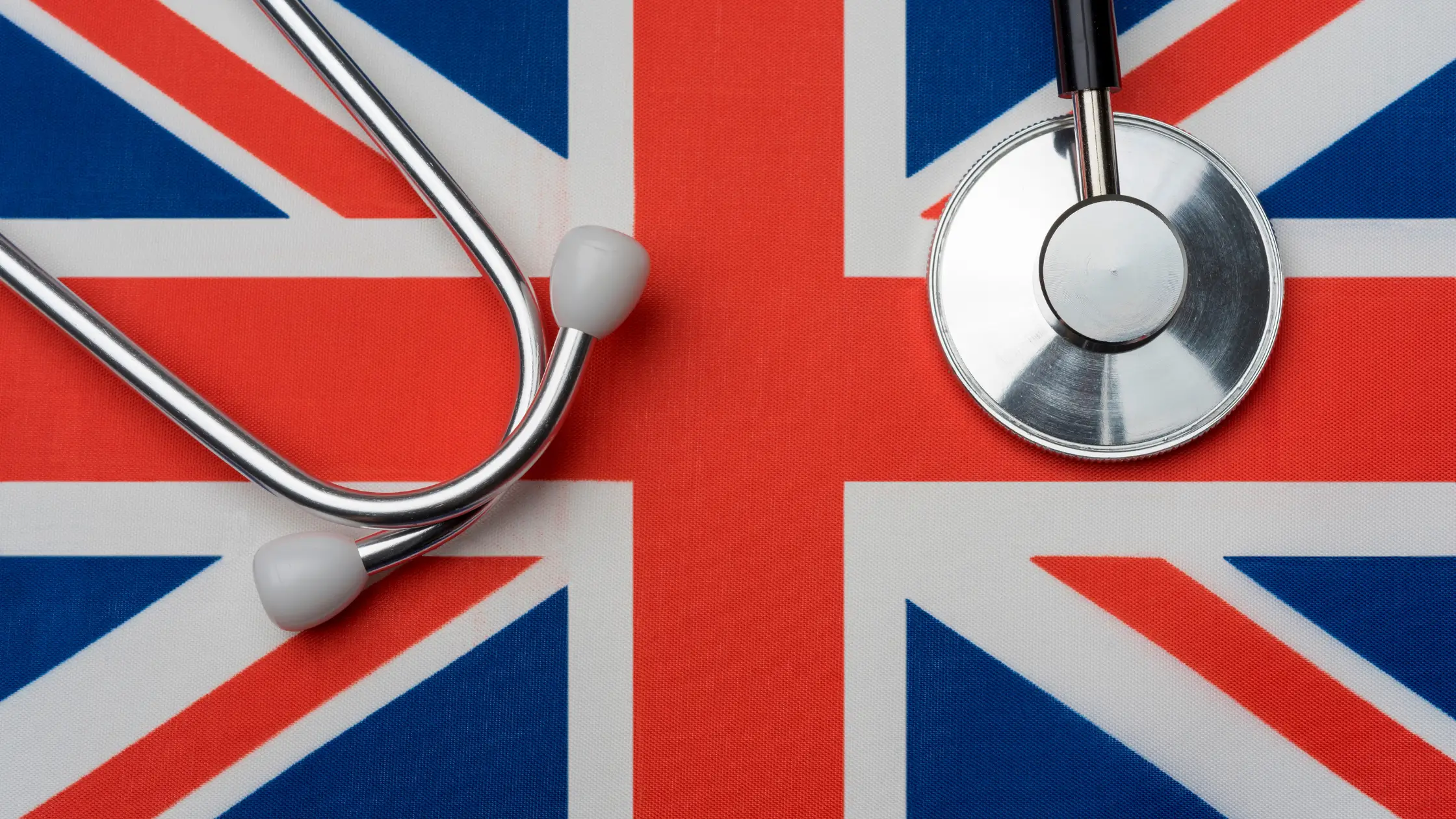In the United Kingdom, health insurance can provide invaluable financial security and access to private healthcare for families. With NHS waiting lists and treatment costs on the rise, many families are considering purchasing private medical insurance to supplement NHS care. This article looks at the costs, benefits, and factors to consider when shopping for family health insurance in the United Kingdom.
What is Health Insurance?
Health insurance, also referred to as private medical insurance or PMI, assists in covering the costs of private healthcare treatment. It works by covering a portion or all of your medical bills if you become ill or injured.
In the United Kingdom, there are two types of health insurance: individual policies that cover one person and family policies that cover two adults and their children living in the same household. Family policies provide coverage for the entire family for a single annual premium.
Benefits of Family Health Insurance
The following are the primary advantages of purchasing family health insurance:
Faster diagnosis and treatment – by seeing specialists privately, you avoid long NHS wait times for tests, surgery, and other procedures. This is especially important for serious diseases like cancer.
A broader range of hospitals and specialists – most health insurers provide nationwide access to leading private hospitals and consultants. This gives you more options for where and with whom you will be treated.
Existing condition coverage – Many family policies will cover any pre-existing health conditions as long as you have fully disclosed them. Pre-existing conditions are not covered by the NHS.
Many family policies include some level of coverage for mental health services such as therapy, psychiatry, and addiction treatment. The NHS has limited resources.
Preventative health services include health screenings, dental exams, physiotherapy, and other methods of staying healthy. Routine preventative care is not covered by the NHS.
Faster access to drug treatments – Health insurance can cover the cost of the most recent drug treatments, which are not always available on the NHS. This includes costly ‘biological’ medications.
There are no sickness waiting periods, and insurance coverage begins as soon as your policy is activated, with no initial exclusion periods. You’re immediately covered.
Optional benefits – Many family policies include optional benefits such as private maternity care, global health coverage while traveling, health cash plans, and more.
How Much Does Family Health Insurance Cost?
Family health insurance costs vary greatly depending on the insurer, level of coverage, and optional benefits selected. The following are some important cost-influencing factors:
Age of family members – premiums for older family members are higher due to increased health risks. Children’s insurance is typically less expensive.
Pre-existing conditions – It is critical to declare all current and previous medical conditions, as undiagnosed conditions may not be covered. Disclosing conditions may result in higher premiums.
Excess amount – Choosing a higher excess (the amount you pay out of pocket before insurance kicks in) lowers monthly premiums. Excesses are typically between £100 and £500 per claim.
Outpatient treatment – Policies that cover outpatient care such as GP fees, scans, and specialist consultations are more expensive than policies that only cover private inpatient treatment.
Premiums are higher if you want access to all private hospitals and facilities rather than a limited network.
Optional benefits, such as mental health coverage, therapies, maternity care, and dental coverage, will raise costs.
A typical mid-range family policy covering two adults aged 30-35 and two children up to the age of 18 costs between £150 and £300 per month. Premium comprehensive policies can cost more than £500 per month.
Here are some examples of average monthly premiums from leading UK providers for family health insurance:
- Bupa – £220 per month for mid-level family insurance with a £100 excess
- AXA Health – £280 per month for comprehensive family insurance with a £150 excess
- Vitality Health – premium family plan, £310 per month, £200 excess
- Aviva – £170 per month for basic family coverage with a £500 excess
- SimplyHealth – £250 per month for a mid-tier family plan with a £100 excess
The price range reflects the level of protection and overall policy benefits. Before selecting a policy, always compare the details – cheaper does not always imply better value coverage.
Factors That Affect Family Premiums
The exact premium you’ll pay is determined by several important factors, including:
Age – premiums rise significantly after the age of 65. Insurance for elderly parents or grandparents will increase costs.
Ages of children – most family policies cover children up to the age of 18, or 21 if in full-time education. Older ‘dependent’ children may be subject to additional premiums.
Pre-existing conditions – disclose all prior health issues or risk having your claims denied later. Conditions that are not disclosed may not be covered.
Factors such as smoking, a high BMI, and a family medical history can all raise premiums.
Excess amount – Choosing a higher excess amount lowers premiums but raises the amount you pay per claim.
Outpatient coverage – provides essential services such as scans, consultations, and therapies, but is more expensive than inpatient-only policies.
Treatment locations – limiting treatment to a few hospitals and clinics can help to lower premiums.
Optional benefits, such as dental, optical, mental health, and maternity coverage, raise overall policy costs.
Getting Accurate Quotes
Always get personalised quotes from insurers that match your specific circumstances to understand exactly how much you’ll pay for family cover. Online comparison sites can help you quickly compare quotes:
- ActiveQuote
- GoCompare
- Market Comparison
- MoneySuperMarket
When getting quotes, have the following information on hand:
- Ages
- Medical background
- Factors related to one’s way of life
- desired level of insurance and benefits
This ensures that you receive accurate quotes for comparison purposes. Consider using an independent broker to obtain market quotes.
Tax Relief on Premiums
The government offers tax breaks on private medical insurance premiums paid for through work. If your employer pays for family insurance, your taxable income is reduced by the premium amount, saving you income tax and national insurance.
Check with your employer to see if family health insurance is available as a work benefit.
Is Family Health Insurance Worth It?
Is it really worth it to pay for family health insurance after such a large investment? Your family may benefit from the following:
- Immediate access to treatment and diagnostics for life-threatening illnesses such as cancer and heart disease.
- Avoiding long NHS waits for elective surgery such as joint replacements and hernia operations, among other things.
- Coverage for private psychiatric facilities’ mental health treatment.
- Rapid access to the most recent drug treatments for diseases such as arthritis and multiple sclerosis.
- There are no bills or charges for hospitalization, theatre fees, or diagnostic tests.
- Regular private health screening to detect problems early.
- Support for long-term conditions such as diabetes in order to avoid complications.
- Better options for specialists, hospitals, and appointment times.
Private medical insurance can provide real health benefits and peace of mind for families who can afford the premiums. Having quick access to diagnosis and treatment for both acute and chronic conditions can be extremely beneficial.
While the NHS provides basic care for all, long wait times for many services may mean that private care is the better option for many families. Health insurance can be life-changing for a significant one-time event, such as a cancer diagnosis or serious injury.
Expert Tips for Reducing Family Premiums
Here are some helpful hints from healthcare professionals for lowering your family’s health insurance premiums:
- Increase the policy excess to at least £100 per claim to save 15-25% on premiums. Simply be prepared to pay more if you file a claim.
- Limit the number of hospitals you visit – avoiding the most expensive private hospitals reduces insurer fees.
- Start young and choose longer terms – families who insure early often get lower long-term rates if they keep coverage for many years.
- Choose limited outpatient coverage – outpatient-only policies are roughly half the price of full coverage. Only use this for serious illnesses.
- Add adult children separately – it may be less expensive to insure older children separately. They can remain on the family policy until they reach the age of 26 if they are enrolled in full-time education.
- Get in shape and stay healthy – leading more active, low-risk lifestyles results in lower insurance premiums. Consider a wearable fitness tracker as evidence.
- Regularly review your coverage and reassess your needs at policy renewal time. Saving money can be accomplished by eliminating unnecessary benefits or increasing excess.
- Excess top-up insurance is a low-cost additional policy that covers your annual excess amount.
Conclusion
Family health insurance can provide invaluable benefits, but monthly premiums of £150-£500 are a significant financial commitment. Examine your family’s needs and budget carefully. If you are unsure, seek professional advice. While it is less expensive than self-funding private care, families should consider it a long-term investment in their well-being.




